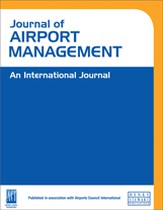Future mobility: How sustainability and operational efficiency are mutually dependent
Abstract
Mobility demand is increasing across all transport modes. To preserve an individual's mobility freedom and avoid mobility sacrifice and pure price increase, stronger intermodal cooperation are key success factors. In this paper, a technology trend researcher and an airport's general manager strive to lift the view towards the future of mobility. They evaluate the question of how the technical equipment will change, how, among other things, a population's mobility habits lead to increasing demand and how this can be served. The two authors believe that seamless processes in between traffic providers and emission free as well as efficient operations are key contributions to the solution. To think mobility beyond each mobility sector is, therefore, a prerequisite. This includes mutually enriching other mobility sectors' ideas, optimised processes and technologies.
The full article is available to subscribers to the journal.
Author's Biography
Mario Herger is a technology trend researcher and author, living in Silicon Valley. He researches technology trends such as autonomous and electric mobility, artificial intelligence and the digital revolution, but also the innovative and creative mindset, foresight, and how digital technologies are affecting the online behaviour of women and marginalised minorities. He has published over a dozen books and is a regular contributor to multiple magazines and blogs. In the past he worked at SAP as a software developer, development manager and technology strategist, and was a mentor at the German Accelerator in Silicon Valley.
Lars Mosdorf is Managing Director of Düsseldorf Airport, Germany's fourth busiest airport. He has been in the aviation industry for more than 16 years, including executive roles at Frankfurt Airport, Fraport AG as well as being CFO at St. Petersburg Pulkovo Airport in Russia. As CFO and CHRO, his responsibilities contain inter alia information technology and digitalisation, artificial intelligence and cyber security. The past two years of the COVID-19 pandemic were characterised by crisis financing and restructuring, but, at the same time, initiating future projects with the goal of sustainable emission reduction and to promote smart, intermodal mobility.
